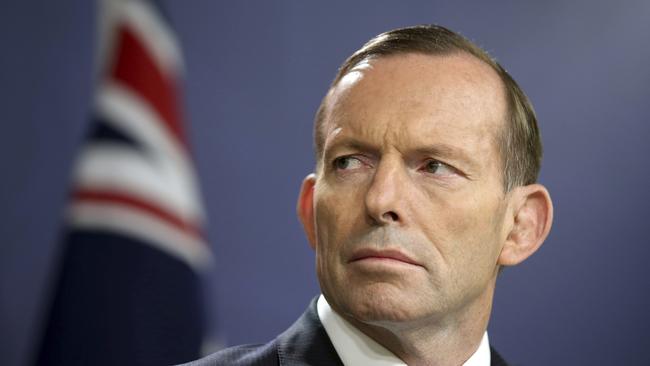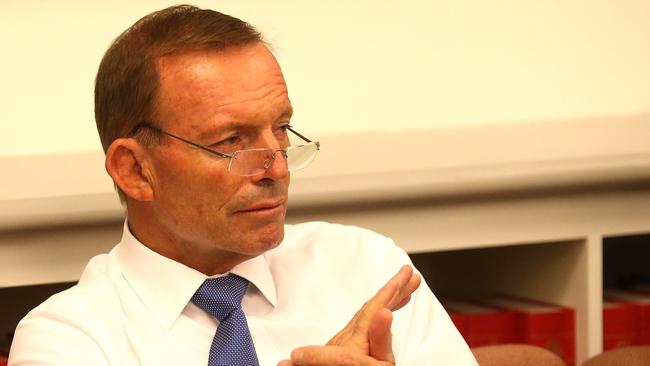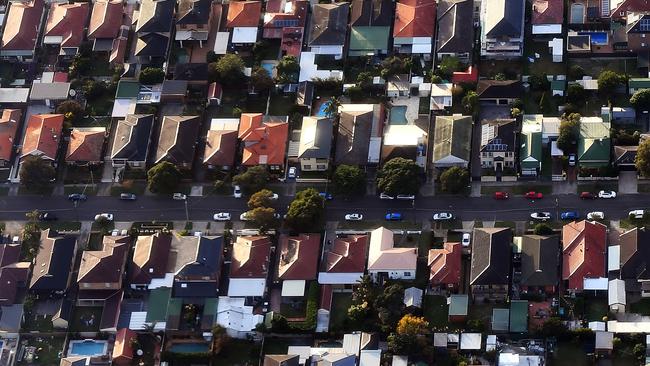Tony Abbott slams Liberal colleagues over migrant intake
TONY Abbott is standing by his call to reduce Australia’s migrant intake, warning it will add “the size of Adelaide to our population every five years”. Is he right or wrong?

DEBATE about Australia’s migrant intake has raged this week, with former prime minister Tony Abbott saying the current rate equates to adding the size of Adelaide to our population every five years.
It’s reignited concerns about how Australia plans to tackle its ageing population, and whether we will have the infrastructure to cope with the increase.
IS ABBOTT RIGHT ABOUT MIGRANTS?
Tony Abbott is standing by his call for Australia to decrease its migrant intake.
In an opinion piece published in The Australian on Friday, entitled “I know more about winning elections than anyone”, he intensified his attack on colleagues Acting Prime Minister Mathias Cormann, Trade Minister Steve Ciobo and Treasurer Scott Morrison, all of whom have slammed his suggestion of cutting the nation’s annual migrant intake from 190,000 to 110,000.
“No one denies (that migrants have brought prosperity to Australia),” he writes. “But does that mean that immigration must always add a city the size of Adelaide to our population every five years?”

The topic has reignited concerns about how Australia plans to tackle its ageing population.
There are two main reasons Australia’s population is ageing. The birthrate has fallen below the replacement rate in the past 20 years, and according to the Treasury department, Australia’s population will eventually decrease without immigration.
The second factor is our increased lifespan. In 1960 the average life expectancy for males was around 68 years. Today it’s 78 years. By 2042, it’s predicted to be around 83 years.
An argument in favour of young migrants is that they make up for this imbalance.
Speaking on Sky News, Bronwyn Bishop dismissed this: “We get this argument all the time that bringing in migration will help bring in younger people, and lower the effects of having an older generation. Well, I’ve got news for you. Migrants age too.”
Bronwyn Bishop: We get this argument all the time that bringing in migration will help bring in younger people, and lower the effects of having an older generation. Well, I have got news for you. Migrants age too.
— Sky News Australia (@SkyNewsAust) February 20, 2018
MORE: https://t.co/ps1dk6X72c#pmlive pic.twitter.com/0GdTOrTKsl
But Dr Liz Allen, a demographer and social researcher at the Australian National University, told news.com.au that migrants will remain a necessary part of the Australian workforce due to our ageing population.
“The fact is the education and skills of young people can’t come close to what’s necessary at the moment,” she said. “Australia has an ageing population and, like many other countries in the world now, we will require immigration to offset adverse consequences.”
She said migrants contribute more to the growth of our economy than they detract from it. “If we were to look at the net effects of the contribution to the economy, Australia benefits and gains more from migrants than migrants draw from Australia.”
READ MORE: Why Tony Abbott is wrong about slashing immigration
According to ABS data, their top three occupations were professionals, technicians and trade workers, and managers.
“We see entrepreneurial behaviour is different among first and second-generation migrants,” said Dr Allen. “That’s because typically migrants from a non-English speaking background tend to do so with some wealth. They’re typically healthier, they’re more likely to create businesses and start-ups. They’re risk-takers.”
COUNTRIES GOING THE OPPOSITE WAY
Interestingly, other countries struggling with an ageing population are actually starting to do the opposite of what Mr Abbott is suggesting on immigration.
The population of Japan is ageing faster than any other country on the planet.
According to 2014 estimates, roughly one-in-three people in Japan are aged 60 and over, and people aged 65 and over are estimated to reach a third by 2050.
66,000 people in Japan are currently over 100 years old.
Prime Minister Shinzo Abe has expressed concern that Japan’s ageing population and shrinking work force will have negative impacts on the country’s economy going forward.
Japan has historically opposed an expansion of immigration, and its population is relatively homogenous.
But concerns for the economy are beginning to spark a shift in thought. A 2015 Asahi Shimbun poll found that 51 per cent of Japanese people supported increased immigration to maintain Japan’s economic status, while only 34 per cent were opposed.

In a 2016 piece written for the Migration Policy Institute, Nagoya University associate professor David Green argues that Japan is “quietly” beginning to embrace immigration as a solution to its problems.
“As economic pressures continue to bear down on Japan and the country seeks to maintain the solvency of its labour market and healthcare and pension systems, larger-scale increases in immigration appear inevitable,” he writes. “It is also reasonable to expect greater promotion of immigration to rural Japan in the longer term, as these areas continue to depopulate.”
China faces a similar problem. The government abandoned its controversial one-child policy because of fears of an ageing population and a shrinking workforce.
It’s predicted that one in three Chinese people will be aged over 60 by 2050, and China’s birthrate is dropping in the meantime.
According to a report by The Atlantic, even a country as populous as China will soon come to rely on migrants to sustain its workforce. “In another decade or two, the social and fiscal pressures created by ageing in China will force what many Chinese find inconceivable for the world’s most populous nation: a mounting need to attract immigrants.”
CONCERNS ABOUT AUSTRALIA’S MIGRANT INTAKE
Despite this evidence, some experts have echoed Tony Abbott’s view.
Earlier this week, population expert Bob Birrell, a former Monash University professor and now head of the Australian Population Research Institute, said net overseas migration was responsible for half the growth in households in Melbourne and Sydney.

“Therefore it’s a major factor in demand for housing in those two cities and a major contributor to price rises as a consequence,” Mr Birrell told news.com.au.
“If there’s going to be any solution to metropolitan problems (housing affordability, pressure on infrastructure, cost of living increases), the immigration program has to be cut drastically.”
This includes everyone coming in or out of Australia annually, whether they are citizens or migrants.
He also said “per capita economic growth” — which he added is what really matters to Australian residents — wouldn’t be growing. “The benefits would mainly be reducing pressure on the big cities — so it’s a trade-off.”



